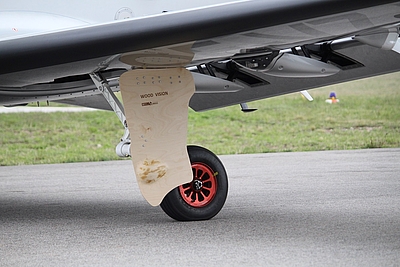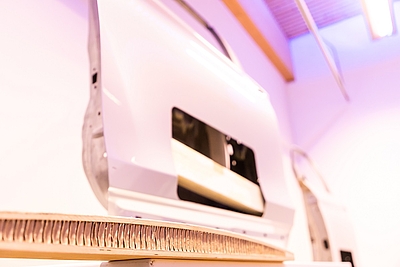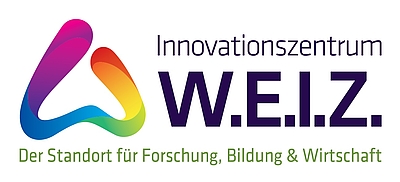
Green lightweight materials
23.10.2023
W.E.I.Z. Forschungs & Entwicklungs GmbH is a non-university research facility dedicated to researching and developing products, technologies and services in the higher-level fields of energy, sustainability, environmental protection and climate action.
As one focus of its R&D work, W.E.I.Z. collaborates with partner networks on topics related to creating sustainable technologies and materials centred on ecological lightweight construction for the mobility industry. Especially in mobility, where things need to be light, stable and sustainable, nothing beats wood as the material of the future. The demands imposed on materials in terms of affordability, sustainability and repeatability are only becoming stricter, which makes gaining in-depth knowledge of wood as a material and its behaviour under various conditions essential. With a view to developing a sound fundamental understanding of the material and deriving methodological competency from this understanding, a large part of the research takes place in cooperation with industrial partners. The focus on issues that arise from the applications guarantees a high level of implementation potential for the research results.
Focus on sustainability
The use of lightweight components made of wood offers a number of implicit ecological benefits, such as the potential to reduce the weight of a vehicle’s components by around 20 percent, leading to lower CO2 emissions in operation. Across the entire life cycle, the use of wood as a substitute for individual components and in smart wood-hybrid designs generates direct ecological, social and economic benefits in the whole of the mobility industry as well as in the mechanical engineering or consumer goods sectors.
Affordable ecological lightweight components
Linking digital engineering to manufacturing processes makes it possible to allow for manufacturing constraints from the start, during the design and layout process. By establishing hybrid processes, digital segmentation of the products and processes enables efficient use of raw materials in the production of the new components. What makes this process innovative is that all the central questions arising in the context of designing components made of sustainable raw materials are answered at a very early stage in the component development. Matching lightweight design potentials are identified, taking manufacturing restrictions into account, and transferred to resource- and cost-efficient manufacturing processes. This optimisation-driven process ensures that design and performance requirements on the one hand and manufacturing constraints on the other are addressed throughout, from project conception to the finished product, and that the best possible compromise between component weight, component cost and manufacturability is found.
W.E.I.Z. Forschungs & Entwicklung GmbH
Franz-Pichler-Straße 30
8160 Weiz
wood-vision@innovationszentrumweiz.at
www.innovationszentrum-weiz.at


